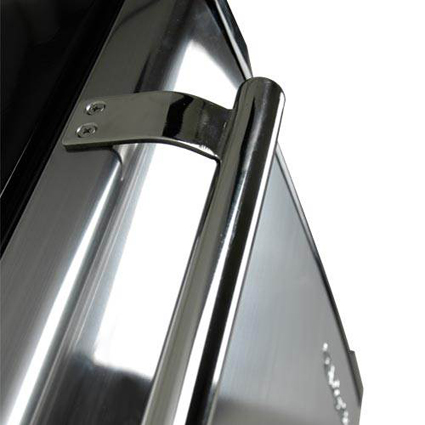Call us: 1-800-734-1557
Save 20% Off Labor
Ice Maker / Ice Machine Repair

Residential Ice Machines:
|
|
|
|
Commercial Ice Machines:
|
|
|
|

In most households and commercial environments, it is quite common for ice machines to require both service and repair for proper functioning. Ice machine repairs are often quite easy to assess due to the limited number of ice maker types and parts.
Common Types of Ice Makers
There are three common styles of ice makers including flex-tray, modular, and component. Each works in a unique manner to develop and deliver ice for everyday use. The flex-tray is often found in older units and utilizes a twisting force to free ice from a tray that is quite flexible, while the more common modular and component ice makers make use of metal ice molds and electric heaters to loosen ice after it forms.
How Ice Makers Work
An ice maker utilizes water that has traveled from a tap through either copper or plastic tubing. The water line is connected to a water inlet valve that oversees the control of water flow. When given to proper signal, water travels into the freezer and then into the ice mold. This process is usually the result of information provided by a thermostat that constantly monitors the temperature of the ice mold. When the temperature falls below a certain level, the ice maker is then signaled to begin making ice.
The motor then works to rotate the ejector blades until they come in contact with the ice. Because the ice freezes solidly to the mold, an ice mold heater heats the mold and loosens the ice as the ejector motor turns. The ice is then pushed out after the heater has done its magic.
Finally, a shutoff arm or switch is used to monitor the level of ice within the bin. It rises at the point that ice is ejected into the bin. More ice is made only at the point that the ice level drops significantly, and then the cycle begins all over again.
Common Types of Repairs
Ice maker services and ice machine repairs are vital for the well-being of a unit. The following are issues that commonly arise for ice machines:
- Ice Maker Makes Too Much Ice or Isn't Shutting Off - If an ice maker tends to make too much ice or isn't shutting off; it is very likely that the shutoff arm or switch is failing to work correctly.
- Ice Maker Fails to Make Ice - This is often caused by a number of factors including a problem shutoff arm or value, faulty water supply line, shutoff switch, incorrect freezer temperature, or troubled ejector gear, motor, ice mold heater, thermostat, or inlet valve.
- Ice Cubes Aren't Forming Correctly - In the case that an ice maker is making ice cubes that are too small or too large, it is probable that there is a problem with the supply valve, supply line, inlet switch, or inlet valve. Such problems can be solved relatively quickly.
- Ice Fails to Eject - When ice fails to eject properly, the issue probably stems from an issue with the ejector gear, ejector motor, holding switch, thermostat, or ice mold heater.
- Ice Tastes Poorly - When water tastes strange and/or bad, the ice bin may need to be cleaned, old food removed, the refrigerator and freezer cleaned, the supply line and inlet valve flushed, or more. Don't settle for less than fresh tasting ice, as the fix may be quite simple.
- Water Leakage - If water leakage occurs, there can be a number of factors including an unleveled fridge or ice making unit. Additionally, the fill cup alignment should be double checked and the supply line, inlet switch, and inlet valve tested.
Ice machines are a common commercial appliance used by a wide variety of businesses even outside the food service industry such as in hotels, motels, and hospitals. They're easy to take for granted until something goes wrong but problems with them usually stem from the fact that they don't operate independent of their surroundings. Your ice machine depends on a smooth steady water supply, and any kinks in that system can affect both ice quality and output. Too little water entering due to obstructed hoses can cause stunted cubes or none at all. Too much water in the form of a leaking intake however can clog the machine's ability to freeze. Your machine may have no troubles at all and still experience slow or poor freezing due to the ambient temperature of your business or water supply. Airflow Appliance Repair will help you get to the root of any problem. There is nothing worse than being the owner of an ice maker that isn't working. You may be amazed at how quickly the issue can be resolved!
For more information on fixing your ice maker, please call Airflow Appliance Repair at 800-734-1557. Our dedicated team will carefully assess your technical issues and provide cost-effective services to meet your needs.
When to buy a new ice machine
- High Energy Bills
According to the U.S. Energy Star program, Each ENERGY STAR qualified commercial ice machine can save businesses energy, about 1,200 kWh annually, or an average of $110/year on utility bills. Besides energy, commercial ice machines also consume water during operation. By purchasing products that meet the new ENERGY STAR criteria, consumers can expect to save an additional $10/year and 2,500 gallons/year due to reduced water usage.Ice Maker / Icemaker / Ice Machine History and Innovations
